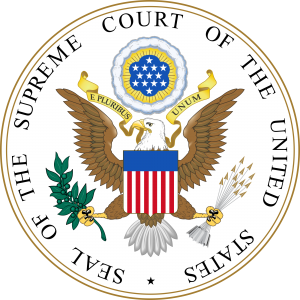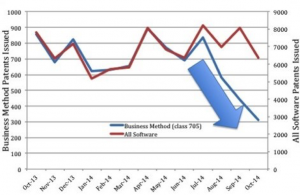US Supreme Court will shortly rule about indirect infringements potentially endangering free trade
 Currently, the US Supreme Court is reviewing a US patent infringement case (Life Technologies Corp. v. Promega Corp., No 14-1538). A decision on indirect patent infringement having negative consequences on trade with and export from the U.S. could be made in this case. The so-called Patent Trolls could also gain advantage from such a decision.
Currently, the US Supreme Court is reviewing a US patent infringement case (Life Technologies Corp. v. Promega Corp., No 14-1538). A decision on indirect patent infringement having negative consequences on trade with and export from the U.S. could be made in this case. The so-called Patent Trolls could also gain advantage from such a decision.
In a previous decision of the Federal Circuit, it was decided that the delivery from the US of only one non-patented standard component of a claimed combination product, to an European based manufacturing affiliate, who then assembles the multi-component product, using non-US sourced components, constitutes infringement of the US patent. This decision finds manufacturing activity in Europe to be infringement of a US patent, even though the European patent is not infringed (it has expired), and this would appear to contradict European law.
The subject of the case embraces a few patents that contain a kit with a container for a polymerizing enzyme for a primal-controlled polymerase-chain reaction. The defendant supplied the so-called Taq polymerase to a subsidiary in the U.K. from the U.S. The U.K. subsidiary then manufactured the kit, and sold it world-wide. Taq polymerase is a standard product for the polymerase chain reaction. The Federal Circuit then held that simply the supplying of the Taq polymerase is a patent infringement in the U.S.(!). A double domestic connection (i.e. delivery of an essential feature domestically and consequent infringing use also domestically), required in Germany for patent infringement, is not required under this court’s interpretation of the US patent statute. . 35 US Code § 271 (f) (1) of the US Patent Law states:
Whoever without authority supplies or causes to be supplied in or from the United States all or a substantial portion of the components of a patented invention, where such components are uncombined in whole or in part, in such manner as to actively induce the combination of such components outside of the United States in a manner that would infringe the patent if such combination occurred within the United States, shall be liable as an infringer.
Surprisingly, it was found in the previous instance that the export of a single standard component falls under the above text and would render the UK manufactured combination kit a patent infringement.
This interpretation would mean that in the future, any delivery of a standard product from the US for use abroad, could be considered an infringement in the US, if said standard product is part of a patented invention in the US and will be used as such abroad. Free trade and the legal certainty would thus be seriously compromised.




